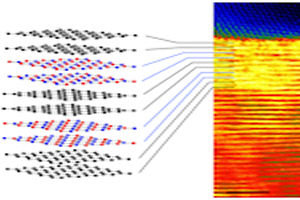Graphene rises to a new challenge
22 Nov 2013
Wonder material could make thinner, stronger condoms

Dr Aravind Vijayaraghavan and his graphene research team have received a Grand Challenges Explorations grant of $100,000 (£62,123) from the Bill and Melinda Gates Foundation to develop new composite nano-materials for next-generation condoms, containing graphene.
Dr Vijayaraghavan took on a challenge that had been presented to inventors around the world – to develop new technology that would make the condom more desirable for use, which could lead to an increase in condom use.
Composite materials are composed of a mixture of two materials, in this case graphene mixed with an elastic polymer such as latex used in traditional condoms. Composite materials currently find a number of high-tech applications such as the chassis of race-cars and bullet-proof Kevlar vests. It is hoped that condoms can be added to this list.
Graphene is the world’s thinnest, strongest and most conductive material, and promises a vast range of diverse applications; from smartphones and ultrafast broadband to drug delivery and computer chips.
It was first isolated by Sir Andre Geim and Sir Kostya Novoselov here at the University in 2004 and has since earned the two scientists the Nobel Prize for Physics in 2010. The research will be carried out in the newly established National Graphene Institute at Manchester.
Dr Vijayaraghavan said: “This composite material will be tailored to enhance the natural sensation during intercourse while using a condom, which should encourage and promote condom use.
“This will be achieved by combining the strength of graphene with the elasticity of latex, to produce a new material which can be thinner, stronger, more stretchy, safer and, perhaps most importantly, more pleasurable.”
He also comments on the impact of this project: “Since its isolation in 2004, people have wondered when graphene will be used in our daily life. Currently, people imagine using graphene in mobile-phone screens, food packaging, chemical sensors, etc.
“If this project is successful, we might have a use for graphene which will literally touch our every-day life in the most intimate way”
